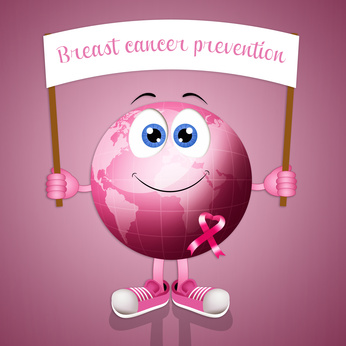 While breast cancer remains the number one cause of cancer-related death in women globally, there is constant struggle to introduce more advanced and improved methods of curative and palliative options. Thanks to the latest breakthrough: it is now scientifically proven that mind-body therapies — including meditation, yoga, acupuncture and even music therapy — can drastically contribute to positive outcomes in breast cancer treatment.
While breast cancer remains the number one cause of cancer-related death in women globally, there is constant struggle to introduce more advanced and improved methods of curative and palliative options. Thanks to the latest breakthrough: it is now scientifically proven that mind-body therapies — including meditation, yoga, acupuncture and even music therapy — can drastically contribute to positive outcomes in breast cancer treatment.
A research recently conducted on 80 different therapies, published in a cancer journal of the American Cancer Society, clearly concluded that there is a direct link between the patient’s mind-body wellness and the treatment outcomes in breast cancer disease.
With growing scientific literature, this revelation serves to support the idea that a healthy mind and soul definitely promote a healthy body. In fact, in the same study, all 80 therapies were graded in terms of effectiveness in an evidence-centered approach. Not very surprisingly, meditation and yoga got the highest grade for making the most impact during the patient’s course of treatment for breast cancer.
In particular, meditation proved the strongest link with best outcomes, receiving an “A” for helping with anxiety, depression and improving overall outlook on life for cancer fighters. Yoga received “B” and hypnosis followed with a “C”. Therapies like acupressure and acupuncture tied with the efficacy of chemotherapy and got a “B” for the effectiveness with respect to breast cancer treatment.
anxiety, depression and improving overall outlook on life for cancer fighters. Yoga received “B” and hypnosis followed with a “C”. Therapies like acupressure and acupuncture tied with the efficacy of chemotherapy and got a “B” for the effectiveness with respect to breast cancer treatment.
The idea that cancer treatment should be a more holistic and integrative plan with involvement of mind-body therapies deserves recognition, not only for breast cancer, but for almost all ailments. Various past studies have largely verified this fact multiple times, and this new research from Columbia University’s Mailman School of Public Health approves it too.
It furthers opens doors for us to re-think how we can play our part in synergizing the role these therapies play in our everyday lives. This furthers strengthens that ideology that meditation and yoga, in particular, are extremely necessary in our lives, with and without cancer.
The use of dietary supplements or botanical products as an adjunct for cancer treatment is still under question. Clearly, patients have increased need of good nutrition while under treatment, and additional supportive care with cognitive behavioral therapy and relaxation exercises can go a long way.
Overall, the growing evidence regarding the use of integrative therapies should prompt all clinicians, healthcare workers and patients to make the most of all available resources. This will not only improve their disease outcome, but will double up as a great lifestyle revolution for them when they get cancer-free and shift towards a more calculated and healthier life.
Johanna Oosterwijk N.D.


